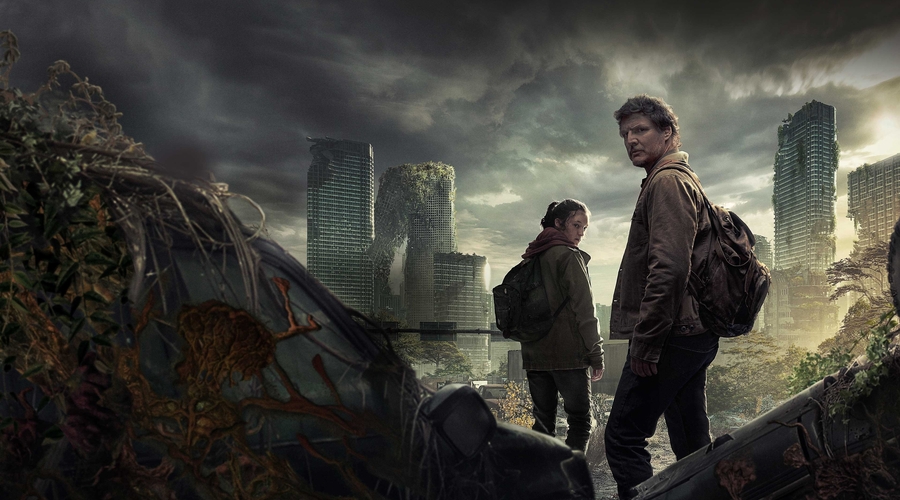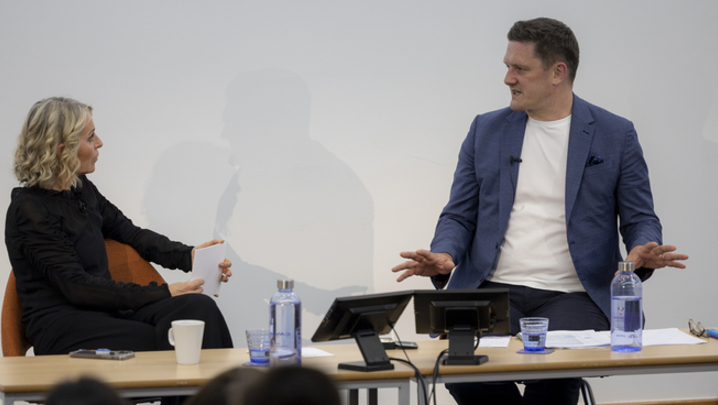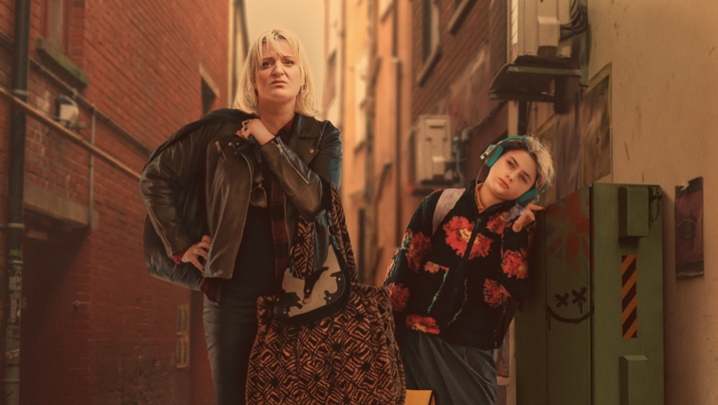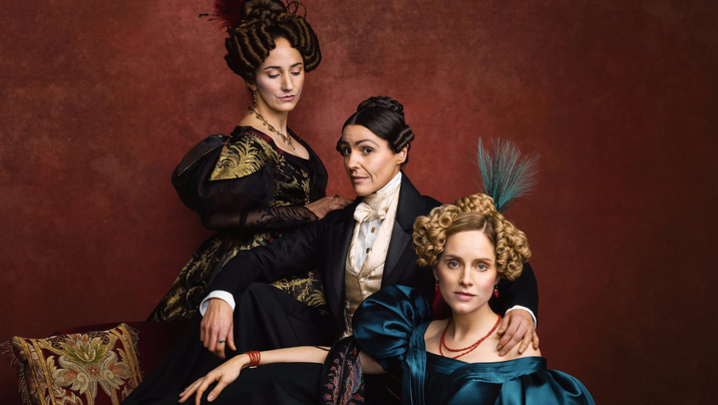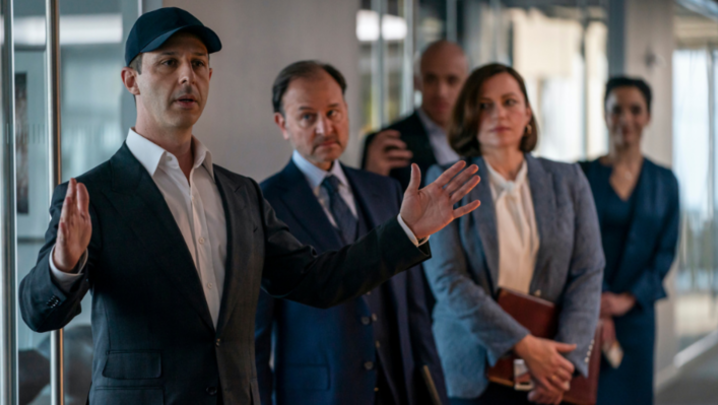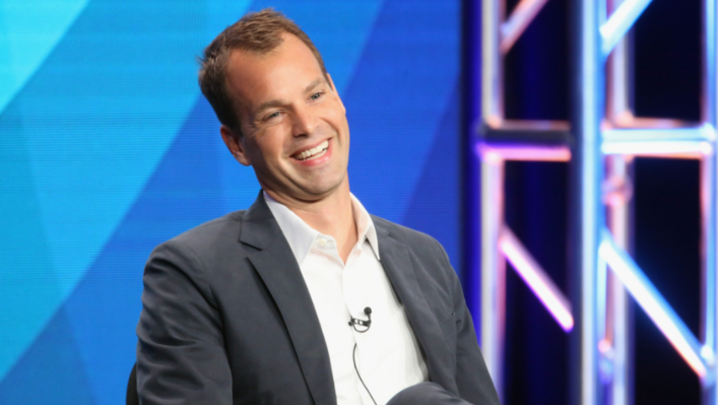Hit TV series The Last of Us is based on a video game. The RTS hears how respect and authenticity are key to a winning adaptation.
If there was doubt before, there is none now: The Last of Us and The Super Mario Bros Movie have proved that games can transfer successfully to TV and film.
Audiences and box office have been astonishing: HBO’s post-apocalyptic series The Last of Us pulled in 30 million viewers per episode, while Super Mario – despite a critical lashing – is closing in on $1bn in ticket sales.
And there are many more much-loved games to be adapted from an industry that is mammoth and growing. Worldwide – depending on which source you take – gaming is worth about $300bn a year, with more than 3 billion players.
The Last of Us video game, co-created by Neil Druckmann and Naughty Dog in 2013, has become a critically lauded TV series since its release earlier this year. Chris Salvaterra, senior vice-president for original drama at HBO, told an RTS panel that The Last of Us was “a collaboration of the highest order”, bringing together Druckmann and Craig Mazin, the creator of acclaimed HBO/Sky series Chernobyl.
Speaking from Los Angeles, he revealed that Mazin “came in as a fan of the game, and I think that sparked… respect and collaboration between the two of them. Neil, to his great credit… understood that there were certain things that needed to be changed about the game to adapt it [into a] television series. So, really, it was this incredible mutual collaboration.”
"I’m kind of surprised that a film hasn’t yet come out."
Salvaterra is not a gamer, which he reckoned was an advantage: “I wasn’t burdened with the history of adaptations gone wrong – I just wanted us to make a great television series that stood on its own.
“But I also knew that if we [showed] fidelity to the source material… the gaming audience would come, and my hope was that people like myself, who wanted to watch great television, would also come.”
But Salvaterra warned: “Every situation is different and I think we have to be careful not to foist a formula on to all [adaptations].
“As Craig Mazin has said often… we cheated. We found a game that is revered for its storytelling, and so that applied beautifully to the scripted format.”
What has held back the successful transfer of games to TV? The fantasy author and entrepreneur Sir Ian Livingstone, who has been involved in the gaming industry for almost five decades, suggested it is “the lack of understanding of gaming intellectual property [IP] and games themselves.”
He believed that “respect and authenticity” were key. “With The Last of Us, it certainly is a tipping point in how collaboration… respect for the IP and understanding of the gamer… and the story have meant an absolutely wonderful production, which has reaped its rewards.
“In film and TV, it’s the director who controls the action; in a video game, it’s the player who controls the action. So, they have a certain expectation of how a drama or dialogue should go. That’s historically never been understood by film- and TV-makers; hence, the awful reviews on Rotten Tomatoes of all the video games that have been adapted for TV and, primarily, film.”
Jon Wardle, director of the National Film and Television School, which offers a master’s degree in games design and development, said TV producers and film studios had tried to “go it alone without involving the original creators”, which had been a mistake. “When you come together and pool your collective strengths, you do better.”
Technological advances are helping to bring gaming and TV closer together. “The technology that’s being developed for the creation of video games is now very sophisticated,” said Jonny Slow, CEO of Pixomondo, a visual effects and virtual production studio recently bought by Sony Pictures Entertainment. “There are techniques from the video game production industry that have wide application in TV and film.”

Nevertheless, many gamers are quite happy to stay where they are. “Games students tell us they don’t want to work on film and TV,” said Wardle. “They’ve got all the skills… they can drive a game engine, and they’re like, ‘Why do I want to go and power a virtual production wall on a filmset when I can make my own original game IP.’”
Bronagh Monahan, co-founder of talent agency and production company MonRae, discussed some of the “digitalfirst talent” she represents, who tend to use YouTube and Twitch as their platforms of choice.
Tom Simons, better known as TommyInnit, produces Minecraft video game-related videos and live streams, and has more than 50 million subscribers across his channels. “He had the most-watched Minecraft stream – 697,000 people, all watching at the same time,” said Monahan.
You would imagine that TV might want to borrow some of these viewers, but Monahan said its attitude was often unhelpful. “There’s been that lack of respect… TV producers coming on to calls and maybe being a bit snobby or… patronising about who these talents are,” she said. “I set up MonRae to say this is a legitimate part of the entertainment industry.
“These talents are often really young and come into a lot of money. They become very wealthy at a very young age and they need to be protected.
“They have ideas, they create stories. There is IP in what they’re doing on YouTube.”
"We have to be careful not to foist a formula on to all [adaptations]."
Salvaterra accepted the accusation of snobbery towards gaming: “On behalf of the film and television industry, I apologise. I think, frankly, the entertainment industrial complex is shifting and I think that’s great, and I think we ignore that at our own peril.”
He added: “We [should] be open to other opportunities and talent, and appreciate that film and television aren’t necessarily the Holy Grail [but] just… an aspect of the entertainment business.”
What video game franchise would the panel like to adapt for TV or film?
“If you’re looking at numbers you’d have to look at something like Grand Theft Auto,” reckoned Sir Ian Livingstone. “Grand Theft Auto V, released in 2013, generated $1 billion in three days of sales. That’s the largest entertainment franchise in any medium. I’m kind of surprised that a film hasn’t yet come out.
“Also, you have to talk about Minecraft – that would make an incredible movie…. But there are so many amazing IPs in the games world… there’s a rich [seam] there waiting for someone who’s exhausted the mines of comics and traditional IP.”
In fact, Minecraft fans will have to wait only a couple of years. Shortly before the RTS event, Warner Bros. announced that beefcake actor Jason Momoa would star in a film adaptation of the video game, helmed by Jared Hess, director of Napoleon Dynamiter. The film’s box office success is almost certainly nailed.
Report by Matthew Bell. ‘Game on! The new world of opportunity in franchises across video games and TV’ was an RTS National Event, held on 24 April. It was chaired by journalist Kate Bulkley and produced by Ashling O’Connor and Daniel Korn.

